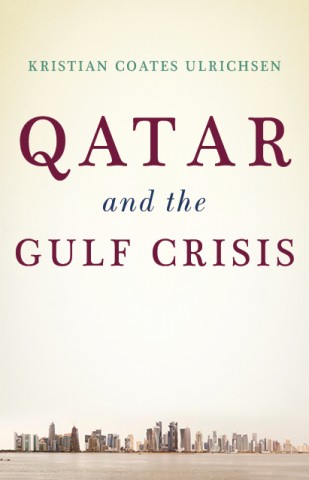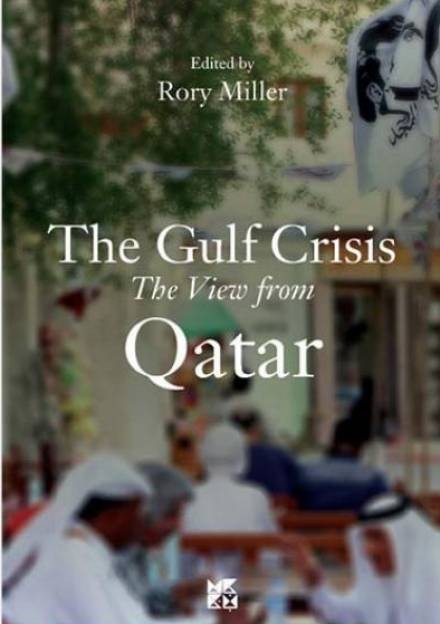In 2017 the UAE, Saudi Arabia, Egypt and Bahrain launched a land, sea, and air blockade of the State of Qatar. Kristian Coates Ulrichsen (author of more than ten books on the region) documents the blockade in "Qatar and the Gulf Crisis" (2019). The author notes in the text that the writing of the book took place in 2019, and it was published in 2020. Shortly thereafter, on Jan 5th 2021, the blockade (formally) ended with the Al Ula agreement. The book is a thorough documenting of the blockade. For those interested in the crisis (its origins, a detailed documenting of what happened, and the implications thereof after the Al Ula Agreement) this is a useful book. A few quotes:
"The blockade of Qatar in June 2017 originated in the infiltration of the Qatar News Agency in April, and the implantation the following month of a 'fake news' story about comments purportedly made by Emir Sheikh Tamim at a military graduation ceremony 23 May. The hack that set in motion the most severe rupture in the Gulf since Saddam Hussein's invasion of Kuwait in August 1990 took place within the first six months of the Donald J. Trump presidency in the United States." (p. 67).
"Twelve days separated the hacking of the Qatar News Agency, on the night of 23/24 May 2017, and the start of the blockade on 5 June. The intensity of the online and media campaign during that period, both in English and in Arabic, suggests a plan to create an echo chamber that linked Qatar with the issues that subsequently formed the public justification for the blockade. Qatari officials catalogued a total of 1120 critical articles in Saudi, Emirati, and Bahraini media between June and October 2017 alone." (p. 71)
"Qatari policy-makers devised a set of facts- and rights-based responses that contrasted sharply with the sweepingly vague associations leveled against them by officials from the four blockading states. By breaking down the different aspects of the blockade into separate issues, and by seeking arbitration from relevant international bodies, Qatari officials followed a rule-of-law approach which gave weight to institutions of global governance that had been designed to constrain and prevent the reshaping of regional relations through brute force." (p. 6)
"Once the blockade was launched the religious establishment in the blockading states was deployed to legitimize the political action against Qatar. The Grand Mufti of Saudi Arabia, Sheikh Abdul-Aziz bin Abdullah Al ash-Sheikh, issued a fatwa stating that action was being taken against Qatar for the public welfare of all Muslims, while the former Grand Mufti of Egypt, Ali Gomaa, claimed that Qatar's ruling Al Thani family was linked to the Khawarij, a group of dissidents from Sunni Islam whose political and theoretical views were held to be heretical." (p. 95)
"Rather more serious was an extraordinary allegation in November 2017 that a financial institution with suspected links to the UAE had considered engaging in 'financial warfare' intended to bring the Qatari economy to its knees. The outline of the planned assault was said to have been drawn up by Banque Havilland, a Luxembourg-based institution, located in a 'task folder' of an email account that belonged to the Emirati ambassador to the United States, Yousef Al Otaiba, and leaked to journalists working at the Intercept. Under the headline 'Control the yield curve, decide the future,' the document suggested establishing an offshore investment fund to hold Qatari bonds and credit default swaps, and using it to precipitate a run on Qatari debt through 'sham transactions.' This would drive down the price of the bonds and create the impression of panic selling, thereby forcing the Qatar Central Bank to bleed its foreign exchange reserves defending the currency peg." (p. 138)


